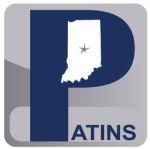For my family, we celebrate a fairly stereotypical Thanksgiving. We are fortunate to have enough food and family to stuff our bellies with food and our homes with conversation and loud TV. Like many, we take this time to count our blessings.
“The purpose of life is not to be happy. It is to be useful, to be honorable, to be compassionate, to have it make some difference that you have lived and lived well.”
― Ralph Waldo Emerson
I am writing this to let you know that there is another opportunity for a group of us to come together and share our collective knowledge to support our students. This week I received an email from Joseph Risch, M.A. BCBA, who is the Reading Specialist with training in Dyslexia for the Indiana Department of Education. He offered the following opportunity:
"IDOE is creating a community of practice for each school corporation, charter school or co-op’s authorized reading specialist trained in dyslexia. These communities of practice will be divided into nine regions across the State of Indiana. Each group will share ideas and resources with periodic facilitated discussions. Please encourage the authorized reading specialist to complete the Jotform by December 6 to be included in these groups."
During the holiday season time seems to go quickly. If you are your school's reading specialist, please fill out the form and join us! If you have any questions you can contact Joseph at JRisch1@doe.in.gov. I will a member of all of the COPs to offer the help that you look to PATINS to provide.
However you celebrate this time of the year, enjoy!
Sandi Smith (with the help of David Jackson)
“The purpose of life is not to be happy. It is to be useful, to be honorable, to be compassionate, to have it make some difference that you have lived and lived well.”
― Ralph Waldo Emerson
I am writing this to let you know that there is another opportunity for a group of us to come together and share our collective knowledge to support our students. This week I received an email from Joseph Risch, M.A. BCBA, who is the Reading Specialist with training in Dyslexia for the Indiana Department of Education. He offered the following opportunity:
"IDOE is creating a community of practice for each school corporation, charter school or co-op’s authorized reading specialist trained in dyslexia. These communities of practice will be divided into nine regions across the State of Indiana. Each group will share ideas and resources with periodic facilitated discussions. Please encourage the authorized reading specialist to complete the Jotform by December 6 to be included in these groups."
During the holiday season time seems to go quickly. If you are your school's reading specialist, please fill out the form and join us! If you have any questions you can contact Joseph at JRisch1@doe.in.gov. I will a member of all of the COPs to offer the help that you look to PATINS to provide.
However you celebrate this time of the year, enjoy!
Sandi Smith (with the help of David Jackson)


